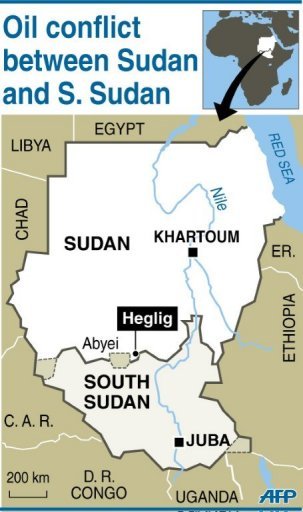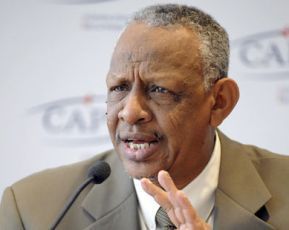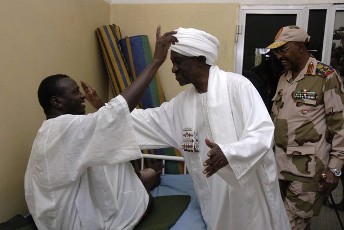South Sudan’s army has completed its withdrawal from Sudan’s main Heglig oil field, the military said Sunday, but condemned the north for bombing the area.
 South Sudan's army has completed its withdrawal from Sudan's main Heglig oil field, the military said Sunday, but condemned the north for bombing the area.
South Sudan's army has completed its withdrawal from Sudan's main Heglig oil field, the military said Sunday, but condemned the north for bombing the area.
Juba seized the flashpoint oil hub on April 10, claiming that Khartoum was using Heglig as a base to attack the South's oil-producing Unity State.
Although South Sudan disputes it, Heglig is internationally regarded as part of Sudan.
The South's Sudanese Peoples Liberation Army (SPLA) "completed its withdrawal from Heglig yesterday," the South's military spokesman Philip Aguer told AFP.
However, Sudan’s presidential assistant, Nafie Ali Nafie, has accused South Sudan’s government of deceiving its people by saying that its army withdrew from Heglig, Sudan Tribune reported.
 Addressing a mobilization rally of Sufi groups in the capital Khartoum on Saturday, Nafie claimed that Juba had in fact pleaded with international mediators to stop Khartoum from shelling SPLA troops inside Heglig.
Addressing a mobilization rally of Sufi groups in the capital Khartoum on Saturday, Nafie claimed that Juba had in fact pleaded with international mediators to stop Khartoum from shelling SPLA troops inside Heglig.
UN chief Ban Ki-Moon branded Juba's 10-day occupation of the region illegal and US President Barack Obama has said the long-time rivals must negotiate to avoid further military escalation along their contested and volatile border.
For his part, The Sudanese First Vice President Ali Osman Taha ruled out quick return to negotiations with S. Sudan, suggesting that negotiations with the South are pointless.
In an interview with Blue Nile TV, Taha also accused Juba of launching economic war on Sudan when SPLA damaged the operating system software of Heglig oil facilities and set the main controls of the plants on fire. The details and scope of the destruction will be revealed in the coming hours, he added.
 Sudan state TV aired footages from inside Heglig showing major destruction in the town while oil facilities were still burning and efforts were made to put out the fires.
Sudan state TV aired footages from inside Heglig showing major destruction in the town while oil facilities were still burning and efforts were made to put out the fires.
The Washington-based Satellite Sentinel Project (SSP) said in a statement today that new satellite imagery revealed that a key part of the pipeline infrastructure was destroyed.
“The damage appears to be so severe, and in such a critical part of the oil infrastructure, that it would likely stop oil flow in the area,” SSP’s statement read.
The Heglig violence was the worst since South Sudan won independence in July after a 1983-2005 civil war in which about two million people died.
Tensions have gradually mounted over the disputed border and other unresolved issues.